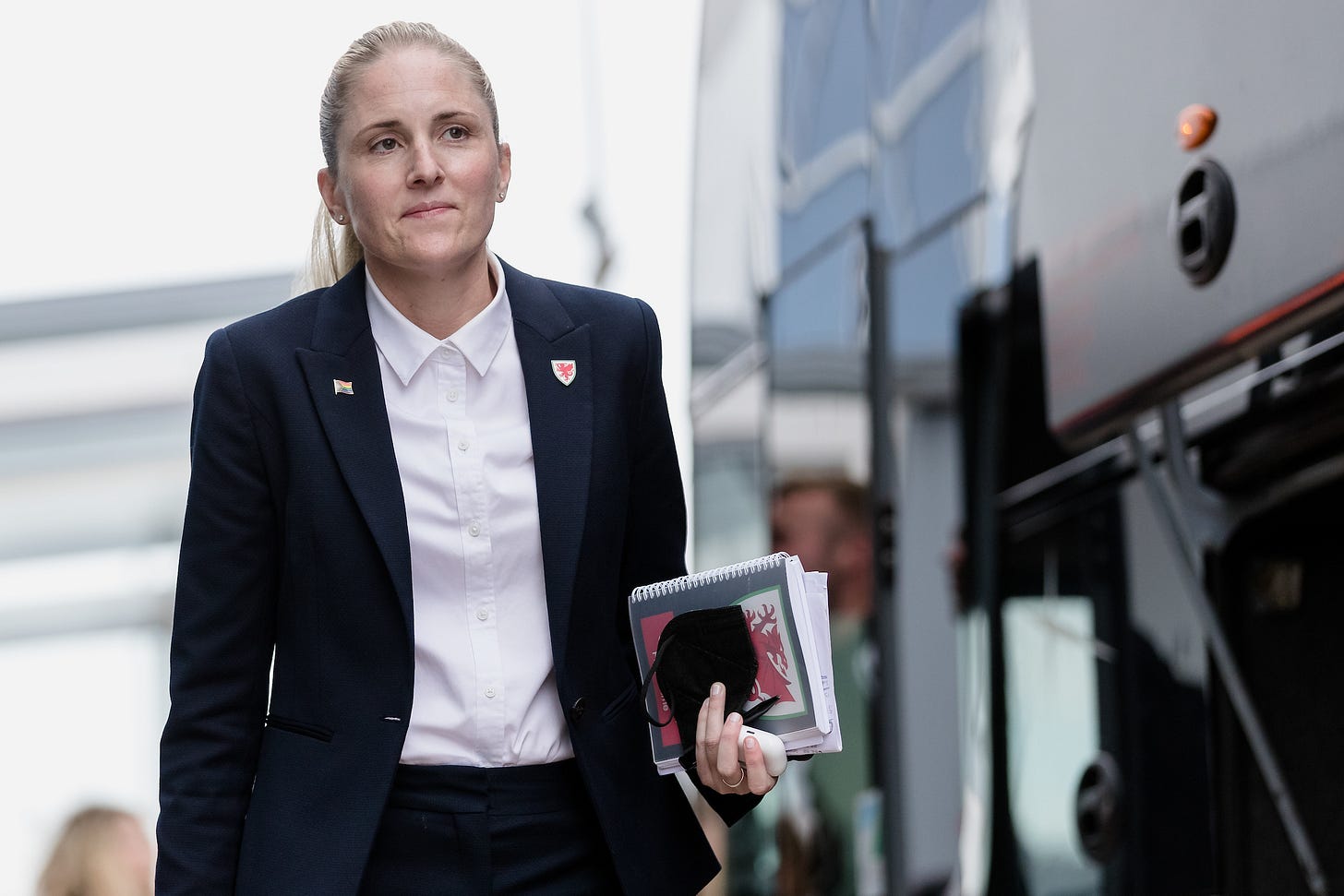The Big Interview: Gemma Grainger
The Wales head coach discusses her journey into a senior international role, how her decade in the FA has aided her view of coaching and the future for Cymru as they search for a major tournament.
“Thank you for calling me a young coach, I appreciate that, that was noted,” laughs Gemma Grainger, head coach of the Wales national team coach.
The former England youth team coach only turned 40 last summer and took on the Wales senior job at 38, remaining one of Europe’s youngest national team coaches.
That is largely because her coaching journey started at just 18 and by 30 she was managing first teams at domestic level in England, first at Middlesbrough and then Leeds United, before a decade spent with the FA where she coached various youth teams, as well as a stint as senior team assistant head coach alongside Mark Sampson at Euro 2017.
“I think the thing I’ve learned most about myself is naturally the game is on that journey to professionalism, so when I was at Leeds United in 2007 and the amateur nation of the sport at that point, would I and could I have ever seen it getting to this point we are now? I’m not sure.
“I always wanted to be as successful as I could be in the game and I see my role as an ambassador for women’s football and a role model for any female out there, but the importance of adaptability and understanding how I need to adapt to meet the needs of the game, of the players, is huge.”
Grainger left the FA to take up the role as Wales head coach just across the border almost two years ago and came so close to guiding the team to a first World Cup, losing to Switzerland in a play-off at the end of last year.
Check out over 100 more unique stories in WFC’s Premium section, available for just £45 for 12 months, paid in one go, or a £6 a month rolling subscription.
All subscriptions come with a 7-day free trial to allow you to explore our full archive.
Plus, guarantee you everything that is to come over the next 12 months…
Whether under Grainger or predecessor Jayne Ludlow, they have some close on several occasions to a major tournament but haven’t yet found the next step, but Grainger is positive about where the team is now and where it’s heading.
“I think we are in a great place in terms of the journey we have been on in the World Cup campaign,” she says. “From an on-pitch perspective, we got further than the team ever had before and we know how close we got to something we dreamed would be our first major tournament. You don’t often qualify for a World Cup before a Euros, however we truly believed we could and we know it’s competitive in particular for European teams and we want that. The team progressed. We looked at that progression and how close we got and we wanted to make sure we could take that progression into the Nations League.
“From an off-pitch perspective and why we do what we do, we broke records in most of our games and to have the record-breaking crowd of 15-and-a-half thousand for our semi-final is a huge achievement for the team and it’s something we’re very proud of. One of the things we want to do here is create meaningful social change for young boys and young girls in Wales, to know that they can achieve and dream big and I think the players played a huge part in that. We’re on track. I’m excited.”
The big question now for Wales is how to take the next step that both Scotland and Northern Ireland have been able to in terms of qualifying for a major tournament, with Euro 2025 now the next marker point on the horizon.
The team has top class players in top teams around the world, such as OL Reign’s Jess Fishlock, Chelsea’s Sophie Ingle and Manchester United’s Hayley Ladd, as well as some promising young players, but has often just lacked some quality or depth in certain areas, and in international football it’s not as simple as going out to splash money on a big-name striker.
Keep reading with a 7-day free trial
Subscribe to Women's Football Chronicles to keep reading this post and get 7 days of free access to the full post archives.


